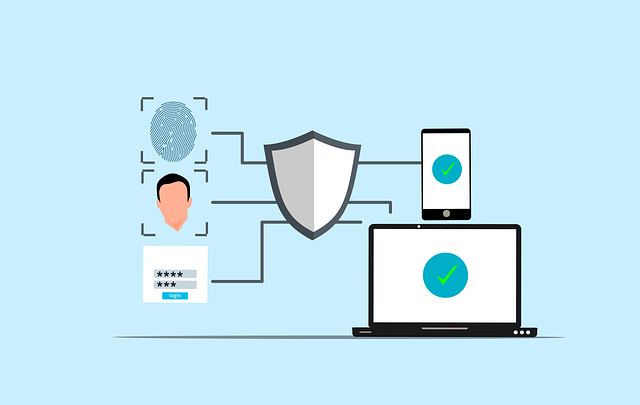Students seeking off-campus accommodation must be vigilant against rental scams. Scammers mimic legitimate agencies with fake listings and unfair contracts. To avoid fraud, verify landlord identities, review contracts thoroughly, and consult campus housing departments. Red flags include low prices, vague listings, and immediate payment demands without viewing. Taking time to investigate protects students from scams and ensures a safe college renting experience. If scammed, document communications, report it to authorities, dispute charges, and inform your college's housing office for tailored advice.
“Navigating the world of student rental options can be challenging, especially with the prevalence of scams targeting vulnerable college students. This comprehensive guide arms you with the knowledge to recognize and avoid common rental frauds. From understanding the telltale signs in listings to essential tips for a safe college move-in, we empower you to make informed decisions. Learn how to protect yourself from student housing scams and ensure a stress-free journey towards your new academic home.”
- Understanding Common Student Rental Scams
- Recognizing Red Flags in Listings and Advertisements
- Protecting Yourself: Essential Tips for Safe College Renting
- What to Do If You Fall Victim to a Rental Scam
Understanding Common Student Rental Scams

Student renters are often targets of various scams, especially when looking for accommodations near their colleges. Recognizing common rental scams is the first step in protecting yourself. One of the most prevalent scams involves fraudulent listings; scammers create fake ads for seemingly perfect apartments or rooms at incredibly low prices, luring unsuspecting students with promises of a great deal. They may even go as far as to mimic legitimate real estate agencies or housing platforms to make their deception more convincing.
Another common tactic is the rush-to-sign contract scheme. Scammers might pressure students into quickly signing rental agreements without thoroughly reading the terms and conditions. They could include unfair clauses, hidden fees, or even demand upfront payments without providing any formal documentation or proof of ownership. To stay safe, students should always take their time to verify the landlord’s identity, read contracts carefully, and seek advice from trusted sources or campus housing departments when in doubt.
Recognizing Red Flags in Listings and Advertisements

When searching for off-campus accommodation, students often turn to online listings and advertisements. However, it’s crucial to be vigilant and recognize potential rental scams. Scammers target students due to their familiarity with digital platforms and eagerness to secure a place quickly. Red flags in listings include unusually low prices, vague or non-existent descriptions, and demands for immediate payment without a proper viewing. Be cautious of listings that lack details about the property’s condition, utilities included, or any legal information from the landlord.
To stay safe, students should always verify the legitimacy of the listing by cross-referencing with other trusted sources. It’s advisable to contact the university’s housing office or resident associates for guidance on reputable rental options. Additionally, checking reviews or reaching out to previous tenants can offer valuable insights into potential scams or reliable landlords. Remember, taking your time to investigate before committing to any agreement is a crucial step in avoiding rental fraud and ensuring a safe college renting experience.
Protecting Yourself: Essential Tips for Safe College Renting

Protecting yourself from rental scams is crucial for any student looking for accommodation. Before securing a place, take the time to research and verify all information provided by potential landlords or property managers. Be wary of deals that seem too good to be true; low rent or no deposit offers are common red flags for student rental scams. Always ensure that communications are made through official channels, such as university housing websites or trusted real estate agencies.
When viewing properties, pay close attention to the condition and safety features. If something seems off, trust your instincts and seek clarification from the landlord. Verify utility bills and lease agreements thoroughly; be cautious of any unusual terms or clauses. It’s also advisable to have a backup plan in place, such as alternative accommodation options, to avoid getting stuck in fraudulent situations. Regularly staying informed about common student rental scams can help you make smarter decisions during your search for safe and legitimate college housing.
What to Do If You Fall Victim to a Rental Scam

If you’ve fallen victim to a student rental scam, it’s crucial to act quickly to mitigate potential losses and protect your future rentals. First, document everything – save all communications with the scammer, including emails, texts, and social media messages. Report the incident to local law enforcement and file a report with the Federal Trade Commission (FTC) using their online Complaint Assistant tool. This not only helps authorities track down scammers but also provides valuable evidence for your own case.
Next, review your lease agreement carefully and assess if any terms were violated. If you’re unsure, consult with a tenant rights organization or legal aid service. Contact your bank immediately to dispute any unauthorized charges and inform them of the fraudulent activity. Lastly, inform your college’s housing office or student union; they may have resources and advice tailored to students facing rental scams on campus. Remember, staying informed and proactive is key in avoiding future student rental tips and ensuring a safe college renting experience.














